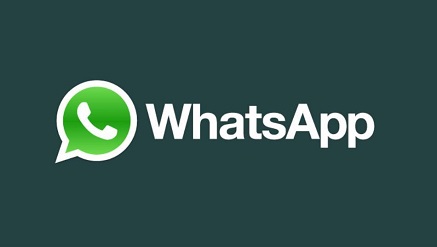Telecom
Nigerian Developers Get Free AI-Assisted Coding from Gemini Code Assist

Google has unveiled Gemini Code Assist for individuals, a free version of their AI-coding assistant. This development assistant powered by Gemini 2.0 is now available to Nigerian developers and it supports all programming languages in the public domain and more importantly, it is optimised for coding.

Recent DORA research indicates that over 75% of developers now integrate AI into their daily workflows, underscoring its growing importance. At Google, for instance, over 25% of new code is AI-generated, subsequently validated by engineering teams.
While established enterprises readily deploy advanced AI tools to enhance developer productivity, access to these resources has historically been limited for students, independent developers, and emerging startups. Given the projected global developer base expansion to 57.8 million by 2028, democratising AI access is both timely and crucial. Providing these tools, regardless of financial capacity, equips the next generation of developers with the essential digital capabilities required for future innovation.
The Gemini 2.0 model was fine-tuned for developers by analysing and validating a large number of real-world coding use cases. As a result, the quality of AI-generated recommendations in Gemini Code Assist is better than ever before and ready to address the myriad of daily challenges developers face. While other popular free coding assistants have restrictive usage limits, with usually only 2,000 code completions per month, Gemini Code Assist offers practically unlimited capacity with up to 180,000 code compilations per month – a high standard that is seldom reached by even the most dedicated professional developers.
AI is revolutionising coding, not only by accelerating code writing but also by empowering developers to write better code. While a quality and efficient code review process is critical, code reviews are often time-consuming. To address this, the public preview of Gemini Code Assist for GitHub, which provides free, AI-powered code reviews for both public and private repositories.
Developers spend most of their time coding in integrated development environments (IDEs). Now, the free version of Gemini Code Assist in Visual Studio Code and JetBrains IDEs offers developers the same code completion, generation, and chat capabilities that have been available to businesses for over a year, and are already freely available in Firebase and Android Studio. This provides an opportunity for anyone to conveniently learn, create code snippets, debug, and modify their existing applications, all within their IDE, eliminating the need to toggle between windows or copy and paste from disconnected sources.
With the most generous usage limit of 90 times, more code completions per month than other popular free coding assistants, coders have a huge opportunity, whether as a student working on a time-sensitive project, there would be no need to worry about chat limits stopping pair – programming sessions or dealing with stalling because you hit a cap.
Gemini Code Assist for individuals comes with a generous token context window, with up to 128,000 input token support in chat. This large context window lets developers use large files and ground Gemini Code Assist with a broader understanding of their local codebases.
The chat feature also makes it easy for developers to focus on the creative part of development, while leaving the necessary, but repetitive steps – like writing comments or automated tests from requirements – to Gemini.
Caption: Gemini Code Assist provides a summary of a pull request and improvement suggestions. Then, when prompted, Gemini provides code readability suggestions.
Nigerian developers can use natural language in a variety of languages in Gemini Code Assist to generate, explain and improve code. For example, a freelance website developer could quickly get code with a prompt like, “Build me a simple HTML form with fields for name, email, and message, and then add a ‘submit’ button.” Or someone just looking to automate more routine tasks can ask Gemini to “Write a script that sends a daily email with the latest weather forecast,” or “Explain what this Python code snippet does and find any errors.”
Code review is one of the most critical, albeit time consuming, parts of software development. With Gemini Code Assist for GitHub, Nigerian developers get a powerful helping hand that can detect stylistic issues and bugs and automatically suggest code changes and fixes. Offloading basic reviews to an AI agent can help make code repositories more maintainable and improve quality, allowing developers to focus on more complex tasks. It’s available directly in GitHub, where most open-source developers post and review code, via a GitHub app.
Different developer teams may also have different best practices, coding conventions and preferred frameworks and libraries. To address this need, Gemini Code Assist for GitHub supports custom style guides for code reviews. Each team can describe which instructions Gemini should follow when reviewing code in a .gemini/styleguide.md file in their repository. That way, Gemini tailors its code reviews to the needs of the repository.
Whether a student building an interactive data visualization using JavaScript, or a freelance developer testing ideas for an application or game, you can use Gemini Code Assist to help you get your project done faster, with more expertise, at no cost.
Signup is quick and easy, and only requires a personal Gmail account, no credit card needed. Nigerian developers can get started by installing Gemini Code Assist in Visual Studio Code, GitHub or JetBrains IDEs.
With user feedback on this public preview, Google will continue to fine-tune Gemini Code Assist. Users can share feedback right from the “Send feedback” form in the IDE or in GitHub. Nigerian developers interested in advanced functionality such as productivity metrics, customised AI responses based on private source code repositories, or integrations with Google Cloud services like BigQuery can also consider Gemini Code Assist Standard or Enterprise.
Telecom
WhatsApp to Start Showing more Adverts in Messaging App

WhatsApp is launching three new ad features in a global roll-out across the messaging app.

The Meta-owned platform said the new ads will not be shown in the same place as people’s private chats, nor will the contents of their messages – which are encrypted – be used to decide which ads to display.
WhatsApp will instead use the country, city and language of the user, as well as how they interact with other ads and which channels they follow, to drive suggested content.
But people who have chosen to link their WhatsApp account to Facebook or Instagram will see more personalised ads.
The new ad features will appear in a section called Updates, which is a separate tab at the bottom of the app.
WhatsApp claims to have 1.5 billion users globally.
Businesses with channels will be able to choose to promote ads in the Updates section to attract new followers, and also charge a subscription to access extra content.
WhatsApp will eventually take a 10% commission of that fee, and there may also be extra costs on top of that taken at the app store level depending on the size of the business.
Firms will also be able to advertise in the form of a status update, which looks similar to an Instagram story and will link through to start a chat if clicked on.
Social media expert Matt Navarra told reporter that Meta is “laying the foundation for WhatsApp to finally become a monetisable platform at scale”.
But “monetising the periphery” of WhatsApp, while keeping personal chats private, would not be without risk for the company, he added.
This could particularly be the case in markets like the UK and Europe, he said, where the app is viewed primarily as a messaging tool with less appetite for content feeds or adverts.
“Any perception that the app is becoming noisy or Facebook-ified will spark backlash,” he said.
How does WhatsApp make money?
‘Natural extension’
It’s no coincidence that the new features bring WhatsApp more in line with Meta’s other platforms Facebook and Instagram.
“Obviously there’s overlap,” said WhatsApp boss Will Cathcart.
“We have stories on Instagram and stories on WhatsApp, and we now have a way for businesses to promote themselves in both, and we think that’s a good thing.”
He said he believed the move was a “natural extension of messaging services” and not dissimilar to features of rival apps such as Snapchat and Telegram.
For Mr Navarra, it also reflects a wider shift in the social media landscape.
“The feed is dying, public sharing is down, people are retreating into DMs and Stories in small groups,” he said.
“Meta’s trying to turn WhatsApp into a platform without users realising it and if they move too fast or it starts to feel like another ad network, people might disengage or maybe worse, distrust the app.”
Telecom
Airtel Africa Reinforces Commitment to ESG Impact while Advancing Digital, Financial Inclusion Across 14 Markets

Airtel Africa, a provider of telecommunications and mobile money services across 14 African countries, has published its Sustainability Report 2025, reaffirming its corporate purpose of transforming lives by expanding access to essential digital services, supporting inclusive economic growth, and advancing environmental stewardship throughout its operations.

In 2024/25, Airtel Africa made significant progress in bridging the digital divide, advancing financial inclusion and supporting underserved communities through strategic investment in connectivity, people, and sustainable practices.
Airtel Africa’s chief executive officer Sunil Taldar said: “This year’s achievements, from connecting 2,176 schools through the UNICEF partnership to reaching 44.6 million Airtel Money customers with near-gender parity, prove that the power of technology is a catalyst for gender balance. At Airtel Africa, we believe to not only expanding networks but we’re also building bridges to education, financial security and sustainable growth for Africa’s next generation.”
Key ESG highlights:
- Providing underserved communities with access to reliable network and connectivity:
- 2% population coverage across 14 markets (up from 80.4% in 2023/24)
- 36,159 4G infrastructure sites, including more than 15,300 in rural areas.
- Continued investment of $670m in network expansion and modernisation to boost speed, coverage and capacity.
Airtel Africa is connecting the unconnected, giving millions access to voice, data and mobile money services – driving economic opportunity and enhancing access to essential services.
- Bridging the digital divide, driving financial inclusion and addressing gender inequality
- 4 million data customers (+14.1% vs 2023/24)
- 6 million Airtel Money customers (+17.3%), with 44.2% Airtel Money customers who are women (+6.2% vs 2023/24)
- 7 million Airtel Money agents in our distribution network (+23.4% vs 2023/24)
- 2% women in the workforce across the Group (up from 28.3% vs 2023/24)
Through inclusive digital services and affordable financial products, Airtel Africa is empowering individuals and communities, particularly women, to fully participate in the digital economy.
- Unlocking potential through education and employment opportunities
- 2,176 schools connected to the internet free of charge (up from 1,201 in 2023/24)
By providing free connectivity and online resources to schools, Airtel Africa is helping young people reach their full potential. A growing agent network also supports employment and entrepreneurship opportunities across its footprint.
- Minimising the impact of our operations on the environment
- 500 off-grid sites converted to on-grid power, reducing reliance on diesel generators.
- 93% of total waste recycled (+3% vs 2023/24)
Airtel Africa is committed to reducing the impact of its operations on the environment through investment in renewable energy solutions and responsible waste management.
The Sustainability Report 2025 adheres to the Global Reporting Initiative (GRI) and GSMA telecommunications industry standards.
Telecom
ALTON Clarifies on Migration to End-User Billing for USSD Services

The Association of Licensed Telecom Operators of Nigeria (ALTON) wishes to inform the public and all mobile subscribers that the migration to the End-User Billing (EUB) model for Unstructured Supplementary Service Data (USSD) services will take effect from Wednesday, 18th June 2025.

This transition marks a significant milestone in the evolution of Nigeria’s digital financial ecosystem and is being implemented per the Determination of USSD Pricing and Services issued by the Nigerian Communications Commission (NCC).
The Determination was developed in collaboration with the Central Bank of Nigeria (CBN) and other key stakeholders to ensure a sustainable, transparent, and customer-friendly framework for USSD service delivery.
USSD services play a vital role in expanding access to financial services, particularly for unbanked and underbanked populations. However, the previous corporate billing model—where banks were billed by telecom operators—led to prolonged disputes over unpaid charges, service interruptions, and uncertainty for customers.
To address these challenges, the NCC’s 2025 Determination introduced the End-User Billing model, which allows mobile network operators to charge customers directly for USSD sessions.
To achieve the implementation of the EUB model, the CBN and NCC have stipulated that only banks that meet certain regulatory and operational conditions are permitted to migrate. One of which is the notification to customers of the billing change in advance, and to ensure that customers are fully aware of the new airtime-based charges and how they will be applied.
Accordingly, under the new billing model, USSD charges will be deducted directly from the customer’s airtime balance, not from their bank account, and each USSD session will attract a charge of ₦6.98 per 120 seconds. To enjoy the service, customers will receive a prompt to opt in and approve the charge before any deduction is made, and there will be no double billing as billing will only occur for successful sessions via airtime deductions.
ALTON wishes to reiterate that this change does not affect the availability or functionality of USSD banking services, as customers can continue to use their bank’s USSD codes as usual, provided they have sufficient airtime.
To ensure a smooth transition, ALTON advises customers to follow these support guidelines:
–For access issues (e.g., inability to dial USSD codes), contact your mobile network operator.
– For transaction-related issues (e.g., failed transfers or service errors), contact your bank’s customer service.
– Both banks and mobile network operators are required to provide responsive support and mensure that customers can access and use USSD services without disruption.
Alternative digital banking channels such as mobile apps, internet banking, and ATMs remain fully operational and available for customer convenience.
ALTON reiterates its commitment to working closely with the NCC, CBN, financial institutions, and other stakeholders to ensure that this transition is seamless, equitable, and beneficial to all parties, especially the end users.
We remain dedicated to promoting transparency, operational efficiency, and consumer protection across Nigeria’s telecommunications and digital finance sectors.

 News2 days ago
News2 days agoWhy I am vying for AFRINIC board seat in 2025 election – Terry Edet

 Telecom1 day ago
Telecom1 day agoGSMA, Mobile Industry Call for Strengthened Action to Advance Child Online Protection in Africa

 E-Financial2 days ago
E-Financial2 days agoFidelity Bank ED, Kevin Ugwuoke takes over as President of Risk Managers Association

 Telecom2 days ago
Telecom2 days agoCrypto Exchange MEXC Rolls Out P2P Support for Naira, Birr, and Rupee

 News23 hours ago
News23 hours agoDigital Africa Global Consult, NDPC Partner on Ground-Breaking “Nigeria Data Challenge” Initiative

 General News1 day ago
General News1 day agoTD Africa, HP Strengthen Partnership to Advance Africa’s Tech Ecosystem

 General News2 days ago
General News2 days agoAirtel Concludes Nationwide Environment Week with Market Clean-Up by Employees

 General News2 days ago
General News2 days agoCourt Orders Lawyer to Produce “Bail-Jumping” Client in MTN Cyber Fraud Case




























